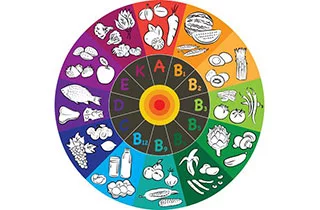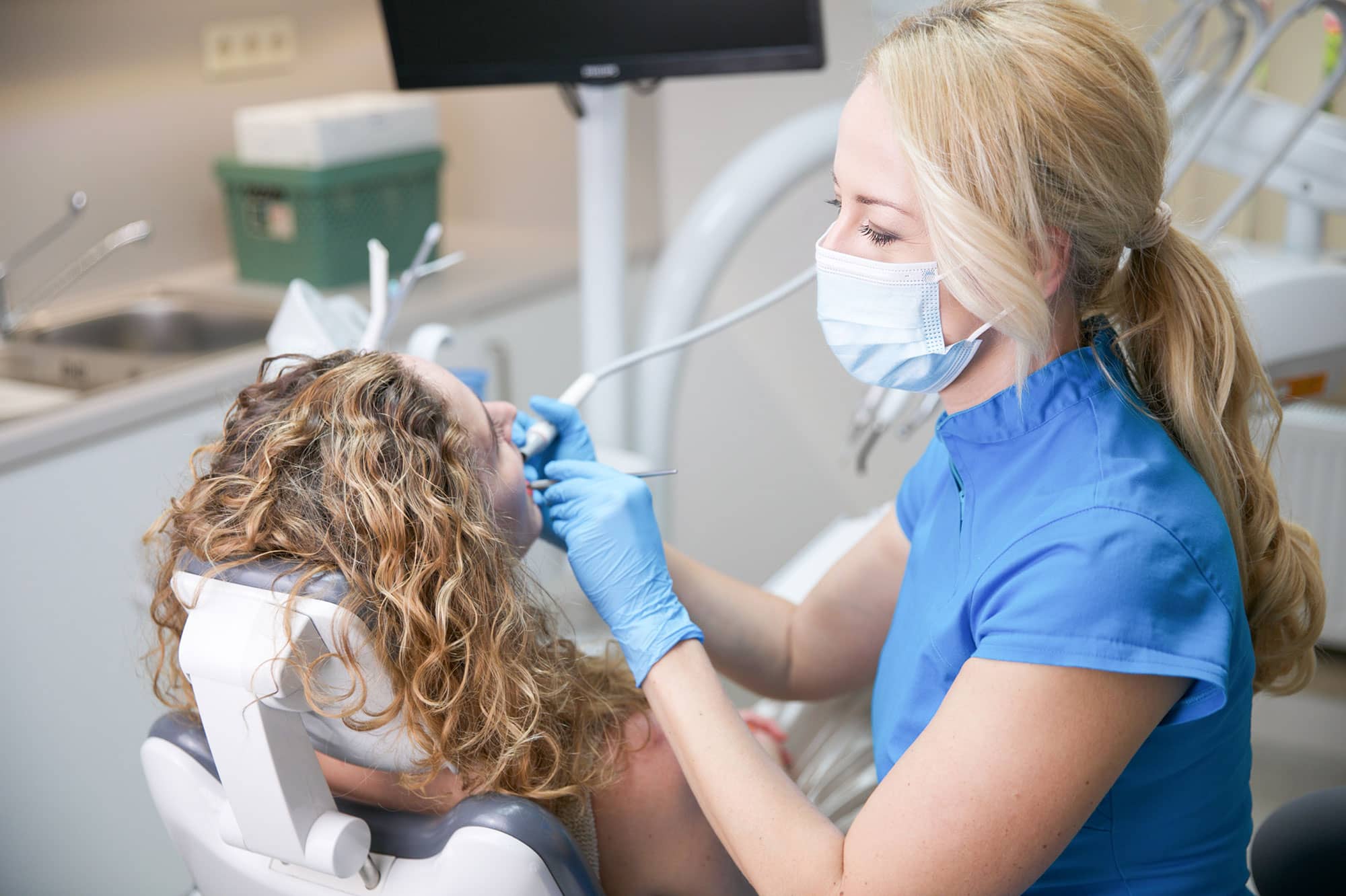Today, about 10% of the population suffers from some level of osteoporosis. As the proportion of elderly people increases, this disease is also becoming more common.
Osteoporosis is a problem that affects many of us; therefore, it is being addressed by researchers in the field of traditional medicine, folk medicine, and healthy eating, so fortunately we possess plenty of useful advice.
In this article you will find answers to the following:

- About osteoporosis and its causes
- Healthy food for strong bones and teeth
- Products which are not on the list of “food for strong bones”
- Vitamins for bones
- Bone strengthening and treatment of teeth problems with herbs
About osteoporosis and its causes
Osteoporosis means the deterioration of the quantity, quality, and function of the bone and the decrease of its lime content. This makes the bone more vulnerable and harder to rebuild itself. Osteoporosis affects not only the teeth but also the whole body, so its treatment requires a complex examination.
The development of the bones of a human being begins in the embryo phase. The amount of the bone mass in the human body peaks when a person is between 25 and 30 years old. Ideally the amount of bone mass should not change significantly in the following years of an adult’s life. Unfortunately, it is almost impossible to maintain the ideal state of strong bones which requires appropriate physical exercise and a good diet.
The following factors play a role in defining our bone structure:
- sex hormones
- little or no physical activity
- loss of teeth
- genetic predisposition
- diseases: hypothyroidism, hyperthyroidism, and parodontosis which has become quite common
Healthy food for strong bones and teeth
Nowadays, it is much harder to obtain a sufficient supply of useful nutrients for strong bones than it used to be. The majority of our foods contain a lot of preservatives. With the help of appropriate nutrition, we can prevent osteoporosis or, if it is already present, it can be mitigated.
The bone tissue is an active and living fabric, which continuously rebuilds itself. For this rebuilding it needs the right kind of nutrients, first of all calcium. Besides the right calcium intake one must make sure to have a diet which gives the appropriate amount of calories and has the right proportion of nutrients.
When it comes to the health of our teeth we all know that we must have appropriate oral hygiene and regular dental check-ups. What we often forget is that teeth are bones, too. So we must consume foods for strong bones in order to protect our teeth as well.
Products which are not on the list of “food for strong bones”
- White flour: Cereal products represent approximately 25-30 % of an average nutrition. Due to refinement, a lot of necessary vitamins and minerals get lost. Their lack causes unrecognizable damage in the bone structure and harms strong bones. It is hard to maintain solid and strong bones if one continuously consumes white flour products. It is much better to consume whole grain products to retain strong bones. Whole grain products have a special dietetic role, since they contain a sufficient amount of required ingredients useful for the bone structure.Some experts do not recommend excessive milk consumption either, as the lactose in dairy products, as a type of sugar, can also damage tooth enamel.
- Refined sugar: Refined sugar contains neither mineral nutrients nor vitamins. It doesn’t have positive effects, only effects that are noxious for health and strong bones. This harmful effect includes the calcium metabolism as well. With a long term refined sugar supply, due to sugar’s noxious effects on yet strong bones, the calcium content of bones diminishes.
- Protein: When we consume too much protein, our body produces too many amino acids in the blood and other organs. In this case even despite an appropriate mineral intake, our bones lose calcium. It is advised to consume vegetable protein instead of animal protein, since the later only increases and speeds up the process of osteoporosis.
- Meat products: Regular and abundant consumption of meat and meat products has a negative effect on bone metabolism. As mentioned before, the quantity and the quality of animal protein accelerates the process of osteoporosis. This is especially true for meat. A diet rich in meat products and cold cuts accelerates the loss of calcium from originally strong bones. Furthermore, compared to other foods, meat products can do very little to replace the already lost bone structure substances .
- Caffeine-containing beverages: Coffee, black tea and coke are harmful for strong bones. On the other hand, the consumption of carbonated beverages is good for the bone structure. This is because the acid of such beverages is regulated with phosphorus. Phosphorus can bind calcium and prevent its absorption in the body.
- Alcohol: Alcoholic beverages disturb both physiological and metabolic processes which can produce calcium and integrate it in the bones. Therefore an exaggerated consumption of alcoholic beverages contributes to osteoporosis.
- Salt: Too much salt is harmful because it causes calcium loss from bones.
- Acidic food:Frequent consumption of acidic food can damage tooth enamel, causing it to lose its mineral content and become more easily decayed. However, after consuming strongly acidic food and drinks, immediate brushing is not recommended, and it is also worth being well informed about the properties of different kinds of toothpaste.
Vitamins for bones
The following vitamins and minerals combined with calcium play an important role when it comes to the forming and preserving of a stable bone tissue. In combination with each other, vitamins, mineral nutrients and calcium influence the bone metabolism as well. Here is a list of vitamins for bones
- Vitamin D is good for strong bones. It enhances calcium absorption in the bowels. It also helps it to integrate into the bone structure. Vitamin D. With the help of Vitamin D our body manages not to lose calcium.
Sources of Vitamin D: liver, eggs, fish oil, milk and dairy products. - Vitamin K plays an important role in the synthesis of bone protein as well as in forming of the bone matrix. Mineral nutrients are built into the bone protein. If we do not have enough vitamin K, the damaged proteins are unable to bind minerals. This problem can occur as a consequence of an exaggerated use of antibiotics.)
Sources of Vitamin K: broccoli, lettuce, spinach, tomatoes, liver, milk and dairy products. - Vitamin B6 is essential for producing proteins indispensable for building muscles and other tissues. It is also needed for the production of enzymes. Vitamin B6 is necessary for building the cartilage and strong bone structure as well.
Sources of Vitamin B6: banana, liver, poultry, wheat bran. - Folic acid: is essential for the healthy development of foetal medulla in the first three months after conception. Folic acid plays an important role when it comes to the binding of homocysteine, an amino acid which is especially harmful for the bone system.
Sources of Folic acid: pulses, spinach, liver, cooked lentils. - Phosphorus: With phosphorus what counts is not only how much of it you consume but also its proportion calcium intake. Ideally, the calcium-to-phosphorus rate is around 1:1 or 1,5:1. With this proportion in your body, phosphor helps calcium to integrate into the bone structure and prevents calcium loss from the body through urine. However, when the amount of phosphorus present is significantly higher than the amount of calcium, certain mechanisms try to decrease the amount of phosphorus. Consequently calcium will be released out of the bones.
Sources of phosphorus: meat products and oilseeds. - Vitamin C is a strong antioxidant, which protects the cells from harmful effects of free radicals and oxidation. Furthermore, Vitamin C helps the forming of certain structured proteins of bones as well as of crosslinks between protein molecules.
Sources of Vitamin C: apple, fruits, sour kraut and vegetables. - Magnesium promotes the production of enzymes, improves the metabolism of proteins, fats and carbohydrates. Magnesium is essential for strong and healthy bones, teeth and gums. Furthermore magnesium influences the shape of lime crystals that are built into the bones.
Sources of Magnesium: oilseeds, tuna, banana, cocoa bean. - Manganese is necessary for the creation of certain enzymes and for starting up the functioning of others. It plays an important role when it comes to the structure and development of bones. It also influences the generation of thyroid hormones, which modulate the speed of metabolism.
Sources of Manganese: pineapple, seafood, hazelnut, oilseeds, ginger.
Bone strengthening and treatment of teeth problems with herbs

- Common Horsetail enhances and increases bone structure and several types of tissues. Common horsetail is indispensable for the preservation of strong bones and for the prevention (or treatment) of osteoporosis.
(More about: Common Horsetail) - Geniste Tinctoria is a herb which has become the object of scientific research in our days, since it contains a secondary plant substance, a certain phytoestrogen belonging to the isoflavones. (More about: Geniste Tinctoria )
- Poppyseed oil has several positive physiological effects. It also contains a great amount of phosphorus. Phosphorus is known for how it pro,motes calcium binding into the bone structure. Poppyseed oil is not a medicine, but simply a healthy food for strong bones. Therefore we can experience its effects only in the long-term.
- Comfreyreduces inflammation, heals wounds, and helps bone fractures heal. Its consumption is recommended in the form of homeopathic and other formulations available in pharmacies.
Warning!
One has to be cautious with bone structure enchancing drugs! Researchers of the Illinois University have found that initially an increase in the quantity of Vitamin D and calcium through healthy nutrients and tablets is more than enough.
“For a lot of people the use of bone-building drugs is necessary only as a second line of defence”, says Karen Chapman-Novasofski, Dietetics Professor
(https://www.worldhealth.net/news/prescription-bone-building-drugs-should-be-last-re/)


